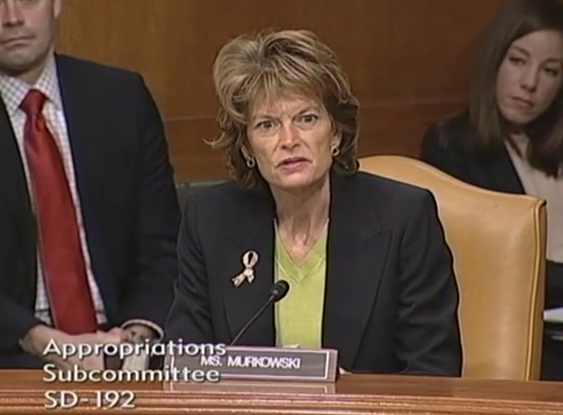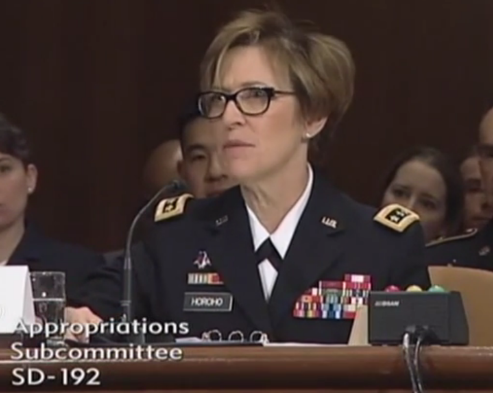Murkowski: Military Must Receive Consistent Medical Care Amid Potential Changes
Top Pentagon Doctors Tell Murkowski Her ALS Work is “Very Important”
Senator Lisa Murkowski today pressed the U.S. Army and U.S. Air Force Surgeons General for certainty about the medical care available to Alaskan soldiers, airmen and their families as the Pentagon considers various reductions and additions. Given the unique and efficient interconnectedness of the Army and Air Force communities in Interior Alaska and Anchorage – with Army doctors treating airmen and vice versa – Murkowski sought answers about whether any changes in troop levels would diminish the health care capabilities.
Following up on her securing $7.5 million in Defense health funds last year to research the prevalence of Lou Gehrig’s disease among veterans deployed in the past generation, Senator Murkowski also pursued answers to questions on whether military medical officials considered this a worthy investment.
No Diminished Care for Soldiers, Airmen and their Families
(Murkowski asks about the impact of troop reductions on medical care.)
Senator Murkowski discussed the U.S. Army listening sessions in both Anchorage and Fairbanks, as the Army considers downsizing troop presence at bases nationwide. She then asked the Surgeon Generals whether – if such a decision was made to reduce Alaska troop levels – the medical care for the greater military communities would degrade, saying:
“As we’re looking to potential reductions – whether up in the Interior or down at JBER – what would be the impact to the delivery of medical services for our Air Force given the very joint nature of our facilities at JBER and up at Wainwright and Eielson?”
U.S. Air Force Surgeon General Lieutenant General Thomas Travis responded to Murkowski that “when there are shifts on the Air Force side, or for the folks [in other branches] that support us, we have a pretty agile system for manning and supporting these facilities to make sure the airmen and their families and the joint partners are supported, and that we don’t lose the capability we have.” U.S. Army Surgeon General Lieutenant General Patricia Horoho gave a more direct response to Murkowski, saying “we are committed to maintaining our capabilities, given the remoteness of the area up there.”
“Very Important” Lou Gehrig’s Disease Research Funding
(Murkowski asks about ALS research in military health.)
Senator Murkowski also raised the not-well-understood association and disproportionate occurrence of amyotrophic lateral sclerosis (ALS) among those who serve in the military. She asked Lieutenant General Patricia Horoho, Surgeon General of the Army, whether or not the $7.5 million in research funding specifically dedicated to ALS was a good investment and if Lt. Gen. Horoho would support a potential increase in that funding. Horoho responded:
“The $7.5 million that you talked about, I do believe it’s important. I think we’re still learning much about exposure to Gulf War illness. We are continually looking at all of our soldiers, sailors, airmen, and marines at environmental exposures and the different diseases that have an outbreak. So any time we have research dollars that are dedicated to allow us to look at preventive measures and protective measures, it’s very important.”










